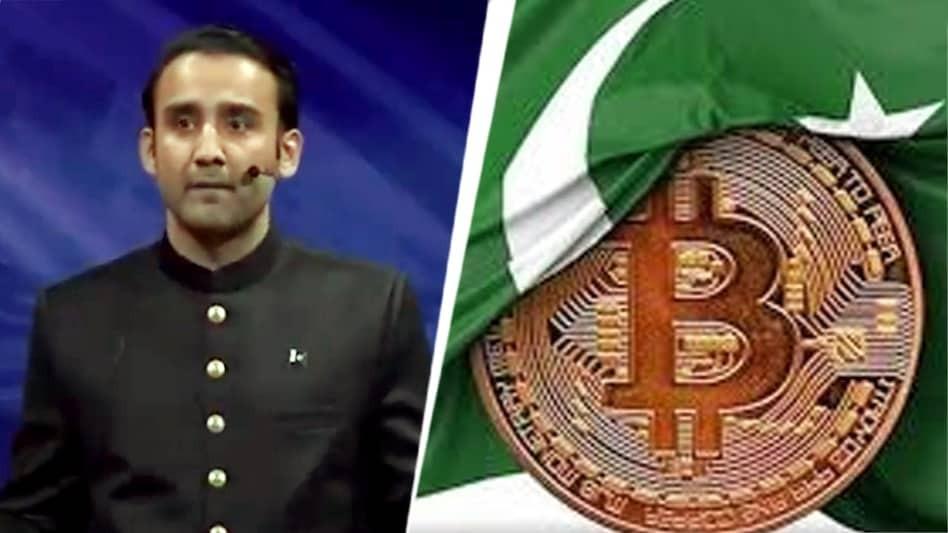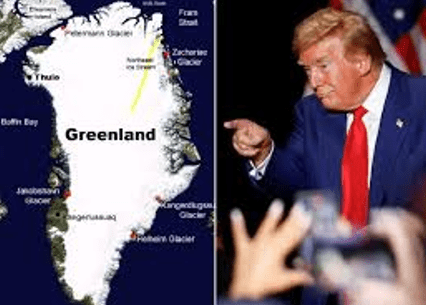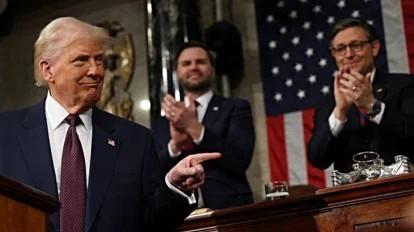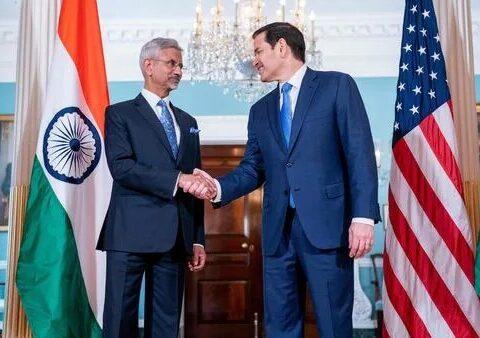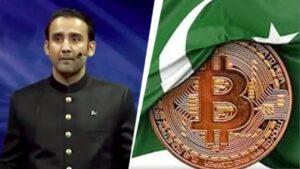
Instead of sanctions, the businessman Donald Trump has bailed out Pakistan yet again, and as the President of USA has damaged international efforts to pin down Islamabad as a terror hub. There was the release of funds by the IMF to Pakistan recently; More recently, Trump approved keeping Pakistan off the visa ban list and approved funds for the upkeep of the F-16 fleet of the Pakistan Air Force. All this and more… was topped by the crypto deal signed (April 26, 2025) between WLF and the newly established PCC. But critics warn that Pakistan risks isolation from global financial institutions such as the IMF and FATF, which have flagged cryptocurrencies as high-risk instruments for terror financing and money laundering.
The Timing is No Coincidence…

Just four days after a deadly terrorist attack in z India’s Pahalgam killed 26 tourists including 23 Hindus and 2 Christians, senior Pakistani officials signed a landmark cryptocurrency agreement with World Liberty Financial (WLF), a U.S.-based Cryptocurrency company closely linked to President Trump’s inner circle. Earlier in April, Zach Witkoff, signed a ‘Letter of Intent’ with PCC to advance cryptocurrency applications and boost blockchain adoption in the country.
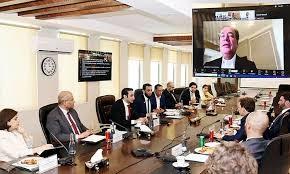
In April, the WLF delegation, including Zachary Folkman, Chase Herro, and Zachary Witkoff (son of Trump’s friend & special envoy to the Middle East), met with Pakistani leadership, including the Prime Minister, Chief of Army Staff Munir, Deputy Prime Minister, and Ministers of Information and Defence, to formalize the cooperation, according to a statement issued by Pakistan’s Finance Ministry. The April 26, closed-door meeting at Pakistan’s Ministry of Finance included an unusual participant: Army Chief Gen. Asim Munir, whose presence in what appeared to be a commercial discussion has fuelled speculations about the deal’s broader strategic motives.
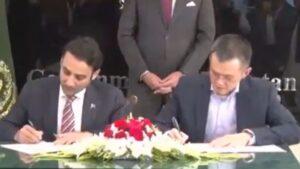
The agreement, coordinated with the newly formed PCC, signals Islamabad’s ambitions to become a regional crypto hub. The government-backed council, established in March, claims over 40 million crypto users nationwide and aims to integrate digital assets into national policy—including a proposed Strategic Bitcoin Reserve.
Adding to the intrigue, despite—or perhaps because of—his controversial background, PCC appointed Binance founder Changpeng Zhao as a strategic adviser earlier on April 7, giving the entire story a Chinese angle. Zhao, who previously pleaded guilty to anti-money laundering violations in the U.S., brings both crypto credibility and controversy. The deal also follows a $45 million investment in WLF by crypto mogul Justin Sun, who remains under U.S. regulatory investigation.

On 26 May 2025, Prime Minister Shehbaz Sharif appointed Bilal Bin Saqib, as CEO of the PCC, who was instrumental in roping in Zhao, to make its legal frame FATF-compliant. Saqib recently met Bo Hines, executive director of Trump’s Council on Digital Assets, at the
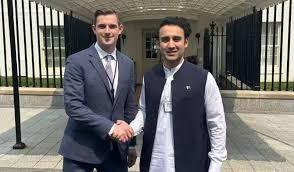
White House to discuss “strategic alignment” on Bitcoin and decentralized finance. Saqib cast Pakistan as a misunderstood but forward-thinking nation, calling Bitcoin a “lifeline for developing countries”, during a Las Vegas blockchain summit in May.
Recently, he also announced a 2,000-megawatt energy allocation to support crypto mining.
Critics say these initiatives reflect less of a technological leap and more a calculated geopolitical pivot—one that coincides with Trump’s renewed interests in South Asia and his self-styled role as regional peacemaker.
The timing is no coincidence. Just days after the Pahalgam attack, Trump publicly cast himself as a regional peacemaker. Whether his call for restraint was driven by the crypto deal unfolding in Islamabad or genuine concerns for regional stability… is no rocket science.
Pakistan Turns to Cryptocurrency to Lure Trump…
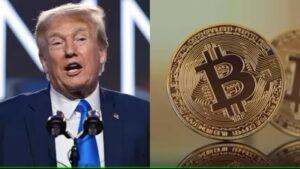
Not surprisingly, the Trump connection has emerged in the PCC crypto deal, indicating that Islamabad’s lobbying efforts in Washington have once again allowed US-Pakistan ties to be ‘business as usual’ despite the ISI’s involvement in the Pahalgam terror attack on 22 April 2025.
In a surprising turn of events, Donald Trump, has brokered a controversial cryptocurrency deal between his family-backed firm, World Liberty Financial (WLF), and Pakistan’s newly established Crypto Council. Trump serves as WLF’s ‘Chief Crypto Advocate,’ with his sons Eric and Donald Jr., and son-in-law Jared Kushner, holding a combined 60% stake, with ties to the Trump-linked company DT Marks DeFi LLC.
Trump’s policy reversal on crypto has enabled these developments. Under his administration, enforcement mechanisms like the Consumer Financial Protection Bureau (CFPB) have been dismantled. David Sacks, now Trump’s AI and crypto czar, derided the CFPB at the Las Vegas Bitcoin summit in May, as a “goon squad that had terrorized the crypto industry”.
Critics see troubling signals in Pakistan’s attempt to align itself with the GENIUS Act, a new U.S. bill championed by the Trump administration to standardize global stablecoin frameworks. The bill requires that trading partners mirror U.S. crypto laws—something Pakistan appears eager to replicate in a bid to bypass stricter global oversight from bodies like the Financial Action Task Force (FATF) and the International Monetary Fund (IMF).
This crypto agreement, facilitated by WLF has raised serious concerns regarding its implications for regional security and potential links to extremist financing.
“It’s not innovation if it skips legality,” said Omer Azhar, a London-based financial analyst. “This looks more like political manoeuvring than a coherent financial strategy.” Azhar also noted that the presence of Zach Witkoff, WLF co-founder, in Islamabad shortly before the agreement suggests Pakistan is attempting to build an informal channel to Donald Trump through Zach Witkoff. “It’s soft diplomacy through digital finance,” he said. “This suggests a desire to engage with U.S. conservative circles after Trump’s return to power”, he added.
“This could become a workaround,” said a senior Western diplomat in Islamabad, speaking on condition of anonymity. “If Pakistan can align with a U.S.-led crypto regime, it may skirt the traditional levers of economic accountability.”
This isn’t just theory. There are too many coincidences. In the days following the crypto deal, the IMF approved a fresh tranche of funds to Pakistan, prompting Michael Rubin, a U.S. expert on South Asia, to argue that the bailout effectively subsidizes Beijing. “Pakistan is today a satrapy of China,” he wrote, referring to the $40 billion in debt accrued under the China-Pakistan Economic Corridor (CPEC) in the latest happenings, starting with the IMF funds for Pakistan.
“The stakes are bigger than Bitcoin,” said Azhar. “Pakistan isn’t just betting on crypto—it’s betting on a new global order where traditional gatekeepers like the IMF and FATF no longer call the shots.”
In his hurry to please Trump, Sharif seems to have forgotten that bitcoin is still legally banned in Pakistan under State Bank of Pakistan and Securities and Exchange Commission of Pakistan. Despite the criticism, the Sharif government appears undeterred.
By now, it’s clear that Pakistan warmed itself with the Trump administration through the cryptocurrency route, a business into which the US president’s family is both deeply involved in and invested. President Trump’s crypto-friendly posture has created new openings for actors previously under scrutiny, and Pakistan – the terror-linked nation is seizing the moment.
Pakistan’s Bitcoin Gambit Draws Scrutiny Amid Crypto Ban, Trump Ties, and Legal Uncertainty…
Pakistan’s announcement of a national Strategic Bitcoin Reserve at the Bitcoin Conference in Las Vegas has garnered international attention. But back home, it has raised alarm among lawmakers, economists, and regulators who say the plan lacks both legal foundation and institutional transparency.
Back in Islamabad, Saqib’s executive order to launch the Strategic Bitcoin Reserve—without parliamentary approval or broad consultation—has raised alarms. Navroop Singh, an Indian analyst and founder of Niti Shastra, described on X, Pakistan as the “central node in Trump’s crypto empire” and warned of a “new money laundering scheme” dressed up as digital finance.
Finance Secretary Imdadullah Bosal clarified that no law currently permits the use of digital currencies in Pakistan, and any policy shift would require parliamentary approval—a process that has not yet occurred. Pakistan’s two primary financial regulators, the State Bank of Pakistan (SBP) and the Securities and Exchange Commission of Pakistan (SECP) have reiterated that the trading, mining, and holding of cryptocurrency remain illegal under existing law.
Critics argue that the government’s actions are contradictory, with some lawmakers questioning the legality of encouraging crypto investment while maintaining its illegality. “It’s a contradiction that confuses investors and erodes public trust,” said committee member Mirza Ikhtiar Baig. “How can we tell citizens crypto is illegal while encouraging its use and investment?”
Experts like Ahsan Hamid Durrani warn that without a robust regulatory framework, investing national reserves in volatile assets like bitcoin could jeopardize Pakistan’s financial stability.
Omer Azhar, a London-based financial analyst, told Nikkei, “In Pakistan’s case, the initiative is being driven primarily by private actors and special interest groups with limited regulatory oversight or strategic coherence”. Azhar added, “Rather than a national policy, it resembles a speculative push.”
Washington Watches
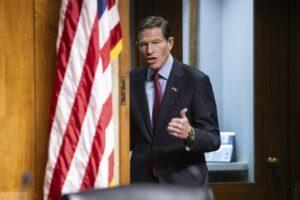
In Washington, the Pakistan-WLF partnership has triggered an alarm. On Capitol Hill, Senator Richard Blumenthal has sent a formal letter to WLF co-founder Zach Witkoff, seeking clarity on the company’s ownership structure and asking whether the deal could violate the U.S. Constitution’s foreign emoluments clause, which bars public officials from receiving gifts or payments from foreign governments.
“Recent reports suggest that World Liberty Financial may be involved in activities that violate government ethics laws,” Blumenthal wrote.
WLF has not addressed questions about its close affiliation with the Trump family, nor has it disclosed how much financial interest, if any, President Trump holds in the company.
According to court documents and independent monitors overseeing Trump’s business interests, the Trump Organization created a Delaware entity, DT Marks DeFi LLC, to manage a token sale worth over $550 million. A portion of that stake was put up for sale in January 2025, but the buyer has not been identified, and the deal’s completion remains unverified, the monitor noted.
Post Crypto agreement, Pakistan receives favours:
Pakistan’s move to engage with WLF comes amid ongoing trade tensions with the United States. In April, President Trump re-imposed a 29% tariff on Pakistani textiles, which was suspended until 9 July. Islamabad is now seeking to renegotiate the tariff, and some officials believe that warming ties through digital finance could strengthen their position.
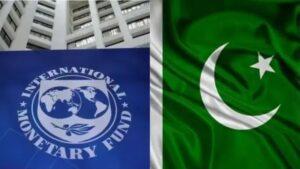
Pakistan receives massive funding; The timing of the crypto agreement coincides with significant financial support from international lenders. On 9 May, the IMF approved a $1 billion loan to Pakistan. Additionally, the World Bank provided $40 billion to Pakistan, soon after Operation Sindoor, and the Asian Development Bank extended $800 million on 3 June.
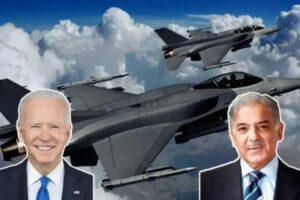
In a related development, President Trump approved (February) funds for the upkeep of Pakistan’s F-16 fleet. Despite the U.S. foreign aid freeze, $396 million in security assistance for Islamabad was exempted, raising questions about the continued military support for Pakistan.
Pakistan gets off visa ban list; While the IMF can get away with ‘bureaucratic rules’ to justify continuance of funding to Pakistan, the crypto deal is part of a bigger pact with Pakistan. The primary global state sponsor of Terror – Pakistan got a reprieve in the visa ban imposed by President Trump on visitors from 12 countries, clearly indicating that the ISI has been working overtime to convince the deep state in the US of its usefulness as a counter-terrorism partner in the region.
ronically, Trump’s visa ban proclamation cites national security concerns to target countries that are ‘deficient with regards to screening and vetting’ of terrorist entities and ‘pose a high risk to the United States’. The visa ban order, effective from 9 June 2025, was announced by Trump on Truth Social referring to the Colorado attack in which an Egyptian national set fire to demonstrators demanding the release of hostages in Gaza. Trump said: “We cannot have open migration from any country where we cannot safely and reliably vet and screen those who seek to enter the United States.”
By following the US lead on crypto currency, Shahbaz Sharif has gained time and money for Pakistan.
Pakistan’s eyewash, befooled USA!

A 20-year-old Pakistani National residing in Canada, Muhammad Shahzeb Khan, also known as Shahzeb Jadoon, extradited to U.S. for Alleged ISIS-Inspired Plot Against New York Jews. The alleged attack was planned to coincide with the first anniversary of the 7 October 2023, Hamas attacks on Israel.
Pakistan’s eyewash of extraditing Shahzeb Jadoon is evident, as US and UN declared global terrorist – Azhar Massod, Hafiz Muhammad Saeed, Lashkar-e-Tayyiba leaders—Nazir Ahmad Chaudhry and Muhammad Hussein Gill (designated global terrorists), are still roaming freely in Pakistan. Their involvement has been linked to several attacks on US, UK, Australia, Russia and India. Masood_Azhar, Source MSN Pakistan.
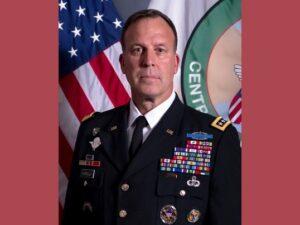
General Michael Kurilla, Commander of U.S. Central Command (CENTCOM), recently, described Pakistan as a “phenomenal partner in the counterterrorism world,” crediting Islamabad with a series of successful operations against ISIS-Khorasan and advocating for continued US engagement with both Pakistan and India.
What makes Pakistan tick?
How does Pakistan manage to sell itself successfully?
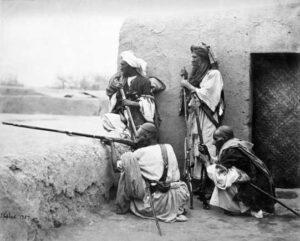
There are two nodes to this game. The first, as Christine Fair observes, is the lack of experience of American diplomats serving in a ‘hazard post’ like Pakistan and not being able to travel, either voluntarily or due to impositions by Islamabad. It gives Pakistan the opportunity to make its narrative effective. The second, is effective lobbying by the ISI in Washington through agents and generous grants to congressmen and others. The sum of Islamabad’s efforts has meant that it behaves like the client state of the US and is in fact a client state of the Chinese. The distinction drawn here is because with the US it gets funds when required, but with Beijing there are loans to be repaid, which is eating away Pakistan’s foreign exchange reserves.

One the common narratives floated is about how Zi ul Haq collaborated with the US to drive the Soviets out of Afghanistan and in the process created the mujahideen. India has been telling the world that Pakistan’s use of jihadi fighters in other countries goes back to 1947. That is what led to the first India-Pakistan war! Coming to Afghanistan, Islamabad began cultivating the Islamists/jihadis in 1973 after Mohammad Daoud Khan ousted King Zahir Shah. It was Zulfiqar Ali Bhutto, who established the ISI’s Afghanistan Cell to train and arm Islamists who were the target of Daoud Khan’s crackdown on Islamists who resisted his pro-Soviet reforms. Thus, when the Soviets marched into Afghanistan, the main mujahideen parties had already been formed. There was no CIA involvement in this game notes Hussain Haqqani and was done by Pakistan all on its own.
Conclusion:
Pakistan’s engagement with WLF has geopolitical implications. The partnership appears to align Pakistan with the Trump administration’s pro-cryptocurrency stance, potentially influencing its relations with both the United States and China.
The move draws scrutiny from international financial watchdogs over lax anti-money laundering enforcement and the potential use of crypto for illicit financing, including terrorism.

